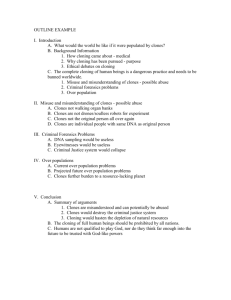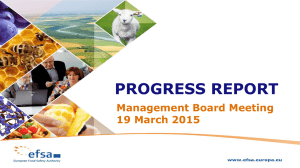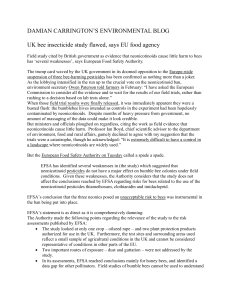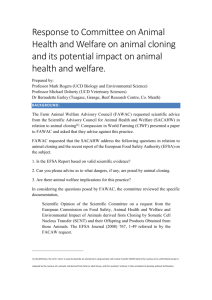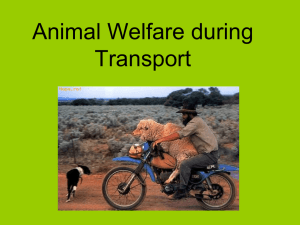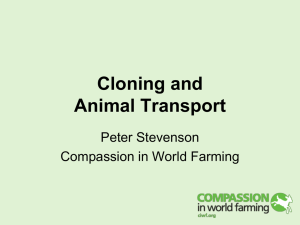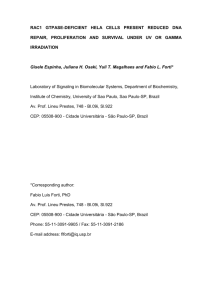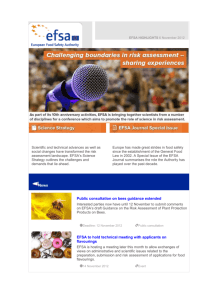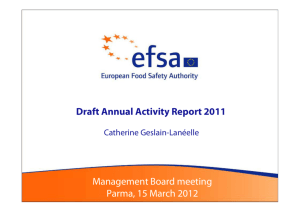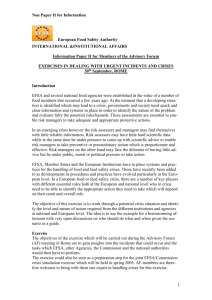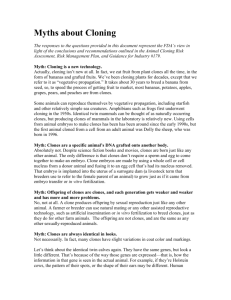Farm animal cloning “no risk”
advertisement
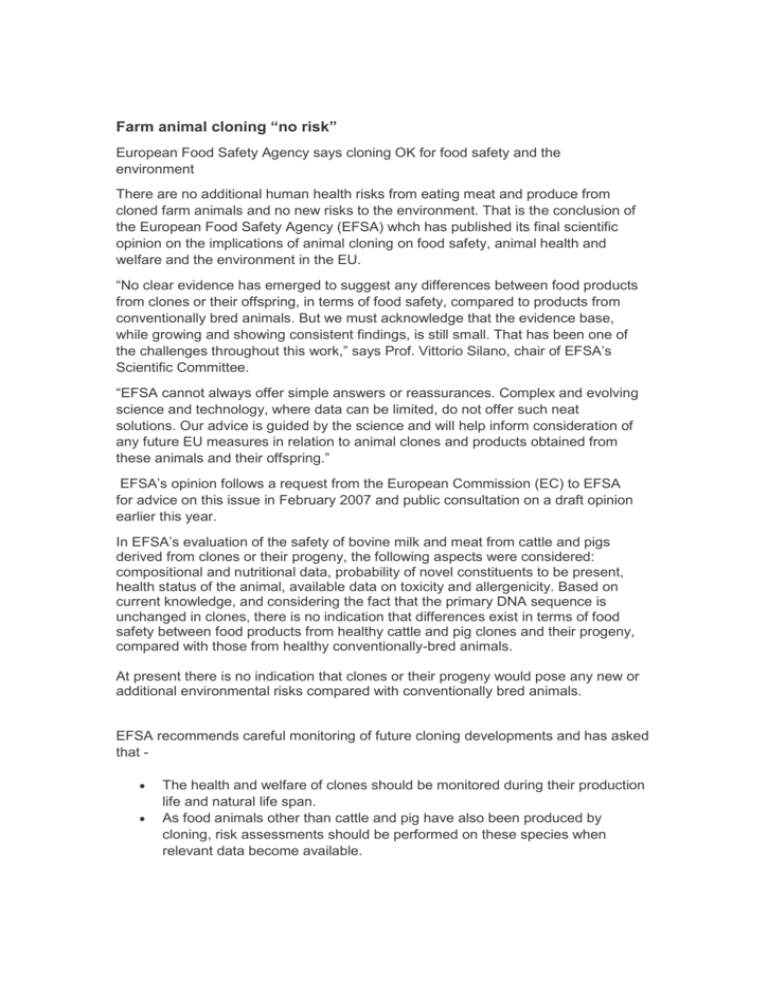
Farm animal cloning “no risk” European Food Safety Agency says cloning OK for food safety and the environment There are no additional human health risks from eating meat and produce from cloned farm animals and no new risks to the environment. That is the conclusion of the European Food Safety Agency (EFSA) whch has published its final scientific opinion on the implications of animal cloning on food safety, animal health and welfare and the environment in the EU. “No clear evidence has emerged to suggest any differences between food products from clones or their offspring, in terms of food safety, compared to products from conventionally bred animals. But we must acknowledge that the evidence base, while growing and showing consistent findings, is still small. That has been one of the challenges throughout this work,” says Prof. Vittorio Silano, chair of EFSA’s Scientific Committee. “EFSA cannot always offer simple answers or reassurances. Complex and evolving science and technology, where data can be limited, do not offer such neat solutions. Our advice is guided by the science and will help inform consideration of any future EU measures in relation to animal clones and products obtained from these animals and their offspring.” EFSA’s opinion follows a request from the European Commission (EC) to EFSA for advice on this issue in February 2007 and public consultation on a draft opinion earlier this year. In EFSA’s evaluation of the safety of bovine milk and meat from cattle and pigs derived from clones or their progeny, the following aspects were considered: compositional and nutritional data, probability of novel constituents to be present, health status of the animal, available data on toxicity and allergenicity. Based on current knowledge, and considering the fact that the primary DNA sequence is unchanged in clones, there is no indication that differences exist in terms of food safety between food products from healthy cattle and pig clones and their progeny, compared with those from healthy conventionally-bred animals. At present there is no indication that clones or their progeny would pose any new or additional environmental risks compared with conventionally bred animals. EFSA recommends careful monitoring of future cloning developments and has asked that The health and welfare of clones should be monitored during their production life and natural life span. As food animals other than cattle and pig have also been produced by cloning, risk assessments should be performed on these species when relevant data become available. Investigate further the causes of pathologies and mortality observed in clones during the gestational and postnatal periods and those observed at a lower frequency in adulthood. Further investigate the immunocompetence and the susceptibility of clones and their offspring to diseases and transmissible agents when reared and kept under conventional husbandry conditions. Perform studies on animal welfare, including behavioural studies, in healthy clones under normal husbandry conditions. http://www.efsa.eu.int/EFSA/efsa_locale-1178620753812_1211902019762.htm ends
